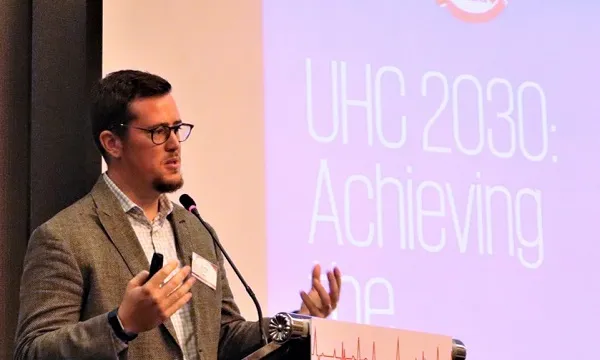
KPMG's Chris Hardesty gives a diagnosis of healthcare's present and future
He says health literacy has increased dramatically as a result of the global health situation.
Chris Hardesty is the Director of KPMG’s Healthcare & Life Sciences Practice. A familiar face in Healthcare Asia events and road shows, Chris was part of the esteemed panel of judges who evaluated the winners at this year’s Healthcare Asia Awards, which was held via video conferences in April amidst a global crisis.
As an avid proponent of universal healthcare in Asia, Chris knows all too well the importance of public and private sector collaboration in advancing healthcare initiatives and improving the quality of life. For him, the current situation is a clear reminder that health and care are integral and even intertwined to a much broader economy.
In an interview with Healthcare Asia, Chris shares KPMG’s proactive efforts in helping curb the pandemic, UHC and sustainable healthcare financing, as well as his personal views on the new reality we’ll be walking into as we await for a much coveted vaccine.
What are the implications brought about by COVID-19 for your healthcare business partners in Asia Pacific? What lessons can we learn from this experience?
We’re keeping a close list of both public and private sector challenges in the near term. On the private sector side, topics primarily pertain to cash flow, supply and other business continuity activities, ongoing advocacy, government economic packages, and soon, mergers and consolidations of distressed assets. For the public sector, staffing, quality assurance, supply prioritization, and communications have been key. So, I am focused on the overlap therein, particularly as it pertains to public-private collaboration for capacity development programmes. This comes in three forms—physical (“pop-up” infrastructure and supply), manpower (front lines, backfilling, upskilling), and increasingly virtual (point-of-care testing or POCT, remote monitoring, and decentralised channels).
I’m conducting my own pandemic docu-series featuring leaders in various parts of the world and the lessons learned therein. The final episode over the coming weeks will be my predictions for health, society, and economy going forward. What is happening is a form of “catastrophic levelling” that makes us rethink many aspects of our professional and personal lives. A bit of a sneak peek, but some of my predictions will entail—a new form of currency to measure value (evolving from the centuries-old classical economics), stakeholder capitalism as a form of political and social order, rethinking our expectations of “free”, healthcare passporting and a true focus on physical and mental wellbeing, and evolving from a sharing into a caring species.
KPMG is said to be working with the NHS to build emergency hospitals in the UK to tackle the pandemic. What’s the situation like for the APAC region in terms of government and private sector support for the healthcare industry?
As per my capacity development points mentioned above, “physical” capacity has been put to the test over the past few months. It’s a real conundrum of healthcare sub-pathways such as hospitals, testing, vaccines—we clamour for more community and home-based models yet, in crisis times, physical infrastructure is a bottleneck by which social and economic intervention decisions are made (e.g., lockdown duration). What’s been impressive to me is how the various segments of the public and private sector are coming together. “Pop-up” infrastructure, such as Nightingale (UK) and hospitals in China, is a great example of the potential of rapid ramp up/down healthcare services.
What this means is that, on one hand, everyone is doing what it takes to manage a crisis far greater than many people and leaders have ever faced. On the other hand, we are concurrently experimenting with new models for the next generation. Similar to the pandemic 100 years ago, perhaps 100 years from now (maybe sooner unfortunately) the future wave of leaders can hopefully learn from our findings. Besides pop-up infrastructure, another concept is the use of advanced technologies to help solve healthcare dilemmas for us on a scale beyond human computation. A recent article I authored with a consortium group in Singapore discusses the use of AI to quickly and precisely identify rapid combo dosing therapies for infectious diseases like COVID.
I commend leaders of countries and multilaterals—it’s not an easy task in front of us. Establishing population immunity while awaiting a vaccine, and using lockdown measures in between, is a delicate political, social, health, and economical balance. KPMG is an active member of COVID task forces such as UNESCO, APACMed, various chamber organizations like EU and US-ASEAN business councils. I commend these consortia as well for their relentless commitment to voicing the recommendations of the private sector to the public sector leaders. We’re all in this together.
Again, I point to my docu-series (mentioned above) for country-specific and multilateral snapshots of how things are playing out now and into the future.
You’ve been an advocate of universal healthcare. Do you think somehow the pandemic has spurred more urgency to achieving UHC in emerging markets? Can you share with us your thoughts on this?
UHC is my passion, as it embodies the potential of public-private collaboration and is the greatest gift a country can give to its people in the modern generation. I still adamantly believe we must continue to march toward the UN 2030 goal of achieving UHC (at least the key tenets of healthcare access and financial protection).
That being said, UHC in and of itself is only one step in the right direction. Growing demographic pressures (non-communicable diseases but also, as we see now, the continued impact of infectious disease) are coupled by a healthcare financing base that is unsustainable. The taxation-to-GDP ratios in Asia are low, and the number of people working in the informal economy high. These mechanisms, combined with dated risk-pooling techniques, have been the traditional design of public healthcare financing (not to mention the residual out-of-pocket impact to individuals and families). I think going forward, as countries and economies face severe budget constraints, we should focus on the efficiencies of healthcare systems.
According to a KPMG study with the World Economic Forum, countries could spend 30% of their current budgets and achieve the same life expectancy. Greater emphasis on prevention (e.g., immunization and wellbeing), smarter purchasing of medical services and technologies as well as the innovation value delivered therein, and human capital development will help to usher in the future of healthcare.
We recently released a report on the topic of sustainable healthcare financing in ASEAN, which outlines the aforementioned in more detail as well as potential solutions therein, such as evidence-based decision-making and social impact bonds. A wider APAC version of the report is underway.
How can KPMG assist healthcare systems in the region to flourish post COVID-19? What would the "new normal" of the industry look like, and what role would KPMG play in this?
Beyond the various elements already mentioned above, I remain optimistic. The current situation is a reminder that health and care are integral and even intertwined to a broader economy. A message we have been trying to raise for years. Let us seek to grasp the innovations happening and not fall backward. Telehealth is a great example—why this wasn’t adopted a decade ago is perplexing, but let’s ride the momentum now.
My personal ambition is to drive a “renaissance of creativity” in the way health and care function. The average person’s health literacy has increased dramatically as a result of the COVID situation, and many if not all organizations going forward will be in the business of healthcare, in one way or another. I would also like to see a greater focus on our collective mental wellbeing. KPMG is here to help shape these initiatives across the public and private sector, and of course we aim to be seen as a leader in “taking our own medicine” advice as well.
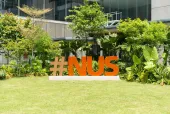
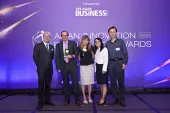
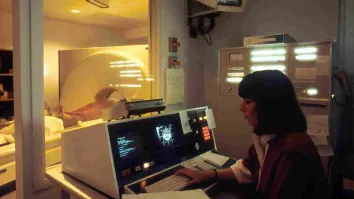

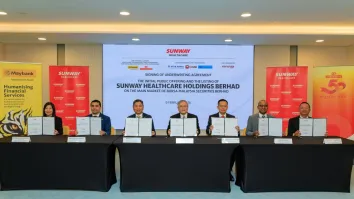
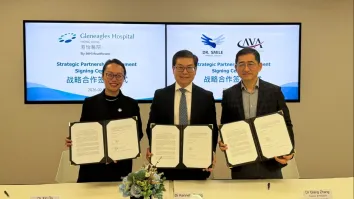













 Advertise
Advertise





